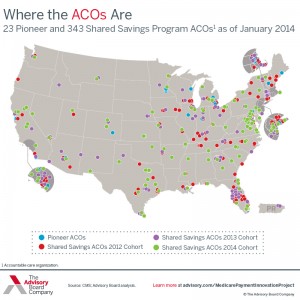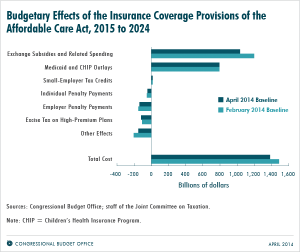Category: “Affordable Care Act”
- The medical device tax: An abject failure
- Ascension deals signal new economic reality in healthcare
- A quick read to understand the ACA law
- Despite increasing rates Florida’s largest healthcare insurer says ACA is here to stay
- ACA playbook for hospital CEOs
- Donald M. Berwick on Triple Aim
- Promising Care: How We Can Rescue Health Care by Improving It
Promising Care: How We Can Rescue Health Care by Improving It collects 16 speeches given over a period of 10 years by Donald M. Berwick, an internationally acclaimed champion of health care improvement throughout the course of his long and storied career as a physician, health care educator and policy expert, leader of the Institute for Healthcare Improvement (IHI), and administrator of the Centers for Medicare & Medicaid Services.
- Inside Obamacare – Forbes primer on the ACA law and how it impacts US Healthcare
- Another causality of lower ACA volumes: Da Vinci robotic systems sales continues to fall
- President’s 2015 budget proposal: Political, not practical
"The president's budget directly counteracts the administration's efforts to reduce healthcare costs and encourage advanced manufacturing in communities across our country by instituting a burdensome prior authorization system," said MITA Executive Director Gail Rodriguez. "Inserting a bureaucratic middleman between physicians and patients will limit seniors' access to diagnostic services, while resulting in wasteful healthcare spending and fewer investments in research and development."
- Obamacare’s Device Tax Grows More Devious
- Pennsylvania becomes 27th state to expand Medicaid
- There has been no increase in new patient visits since the Affordable Care Act took effect
- Impact of the Medical Device Tax
- Hospitals 2.0 – reform reform under ACA
- NYT – ACOs and Mergers might be good for business but not so much for patients
Larger organizations have greater market power to demand higher prices from those plans for doctor visits and hospital stays. And higher prices paid by plans translate into higher premiums for consumers.
- ACA reshapes the Medical Device Industry – tax benefits drive the business now
"As American hospital operators consolidate, medical-device companies can no longer woo individual doctors over filet mignon, but must present their wares to skeptical, centralized hospital bureaucracies."
- Another form of rationing from CMS with 20,000 lives at stake
- ‘Obamacare’ Is More Than Exchanges
Important charts and information on Medicare Expansion, ACO locations, and readmission rates across the US
- Introduction to U.S. Health Policy: The Organization, Financing, and Delivery of Health Care in America
Barr introduces readers to broad cultural issues surrounding health care policy, such as access, affordability, and quality. He discusses specific elements of U.S. health care, including insurance, especially Medicare and Medicaid, the shift to for-profit managed care, the pharmaceutical industry, issues of long-term care, the plight of the uninsured, medical errors, and nursing shortages. The latest edition of this widely adopted text updates the description and discussion of key sectors of America’s health care system in light of the Affordable Care Act.
- How has employer provided health insurance changed in 2014 under ACA?
The architects of the Affordable Care Act have as a stated goal the end of employer provided healthcare insurance. So how has insurance provided by employers fared so far?
- Reform Update: CMS won’t limit flexibility of Oregon CCOs, state says
- Impact of the Medical Device Excise Tax
- How is Seattle doing with the impact of ACA?
- How insurers get paid under ACA
- Higher volumes, less revenue – is big data the answer? Hospital execs think so
- VA governor will bypass lawmakers to expand Medicaid
- CBO reports ACA will save the goverment money
- Hospital consolidation increases costs by reducing competition
There are just some things that are incompatible – like oil and water, communism and capitalism. We may be finding out that ACA’s goal to reduce healthcare costs and the consolidation of providers that is occurring because of the law may be two such incompatible things as well. Several studies are showing that the large, integrated healthcare systems are using their size and influence to drive out completion and set reimbursement rates with insurance companies.
- Hospitals plan for lasting declines in admissions
“The majority of hospitals and health systems are seeing a flattening of their inpatient volumes,” said Jeff Jones, a managing director for Huron Consulting Group. “Some are beginning to see a sustained decline." With so many major Healthcare IDN's experiencing dramatic revenue decreases costs, both operational and capital expenditures are being cut. If you aren't providing cost savings solutions to your healthcare customers you won't be in business much longer.











